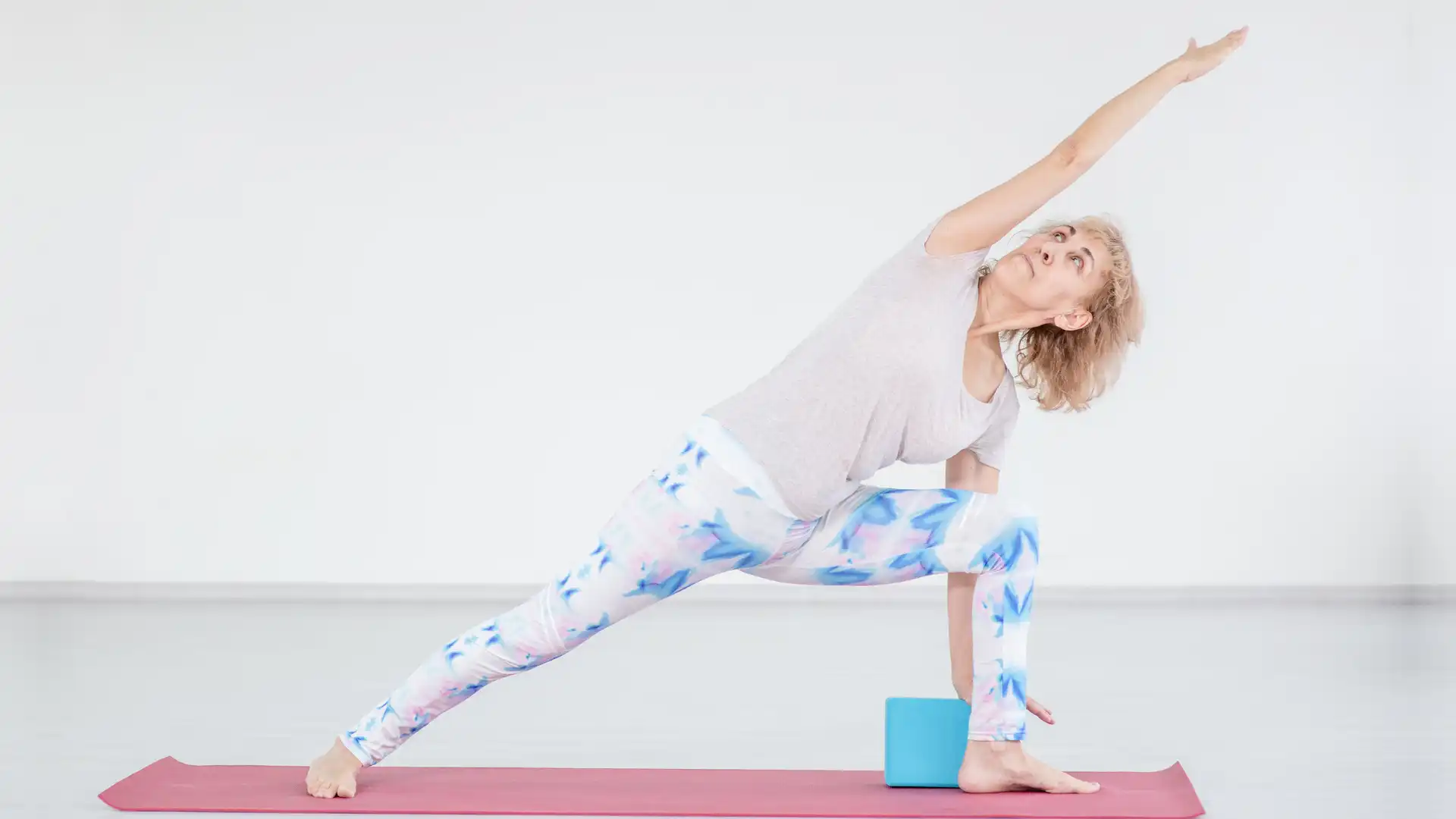Yoga Offers Relief for Insomnia in Post-Menopausal Women

Insomnia affects more than 70 million Americans, according to the U.S. Center for Disease Control, enough to qualify insomnia as a public epidemic. The majority of those affected are women; insomnia in particular becomes increasingly common as women enter menopause.
If you’re one of the millions unsuccessfully counting sheep each night, you might try a new approach to get that peaceful slumber: Yoga. According to a study published earlier this year in the journal Menopause, practicing yoga asana before bed may help not just improve insomnia, but also reduce the severity of menopausal symptoms and increase overall quality of life.
Yoga for insomnia has long been known to offer effective treatment, but this was one of the first studies to look at the effects of yoga asana practice on menopause-related insomnia.
Studies on Yoga for Post-Menopausal Women Who Suffer from Insomnia
“The practice of yoga has been proven to have positive effects on reducing insomnia,” the researchers wrote. “Studies have also shown its effects on reducing climacteric symptoms. To date, however, no studies that evaluate the effects of yoga on postmenopausal women with a diagnosis of insomnia in a randomized clinical trial have been conducted.”
The study followed 44 post-menopausal women who suffered from insomnia and who were not taking hormone therapy. Participants were divided into three groups, an experimental group that was given a specific set of yoga asanas to do each night before bed, and two control groups. Of the two control groups, one group was given no aids to sleeping, and the other group were given passive stretching exercises to do before bed.
After the 4-month study period, the women assigned to the group practicing yoga asana showed greater improvements in the severity of insomnia than both the group who did nothing, as well as the group who did passive stretches. Yoga also proved more than effective in improving resistance to stress and increasing quality of life.
The Far-Reaching Symptoms of Insomnia
Insomnia is more than an inconvenience; it often affects the well-being and energy levels of those affected. Insomnia is implicated in car accidents, medical and work errors, and linked to chronic diseases like high blood pressure, depression, anxiety and obesity, and cancer.
Insomnia is particularly common among post-menopausal women. Researchers speculate that the hormonal changes of menopause are involved in triggering insomnia, which is often further exacerbated by the stress of our fast-paced life, access to technology through the night, and general quality of life choices.
With women living much longer, many will be in the post-menopausal stage of life for a full third of their life. The study on yoga for menopause-related insomnia highlights the power of yoga and other holistic practices to transform this time from one of a growing list of symptoms to a vital period of transformation and self-expression.


